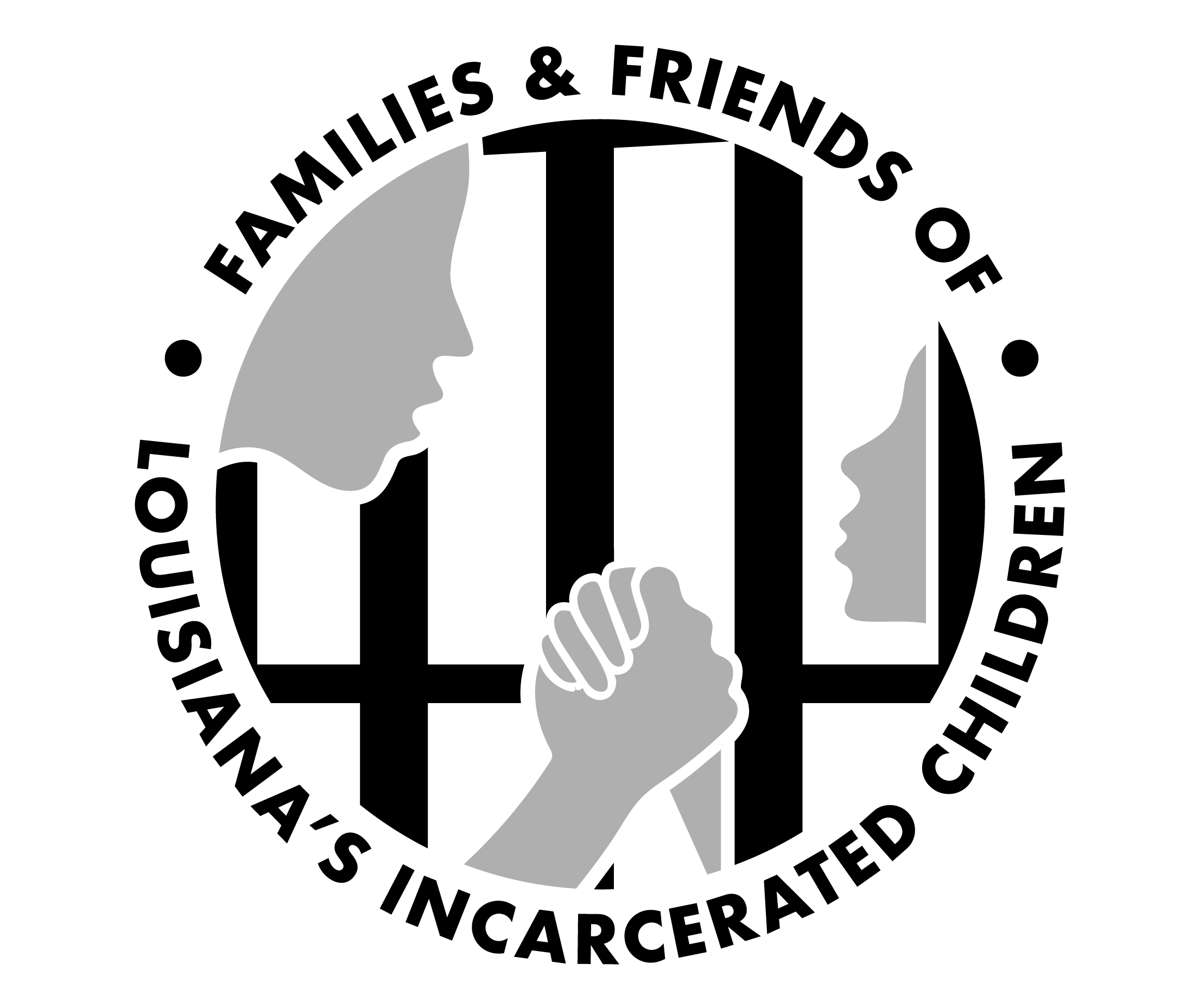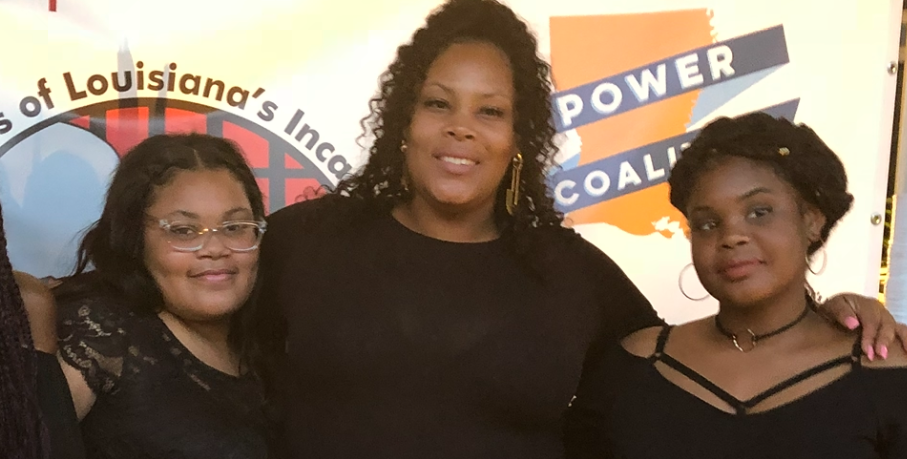(Pictured in above photo from left to right: Tayla, Tangea, and Tamia Cenance)
Tangea knows the power of transformation offered by advocacy— the kind that is born from intention, support, and community. A proud mother of four, a lifelong New Orleanian, and a member of FFLIC, she’s watched her children grow in vastly different times than when she was coming up in New Orleans East. She’s also watched them become shaped by the support and opportunities offered by FFLIC.
“Things were different for me and my generation,” she recalls. “I had a car at sixteen. We were outside, active, and more involved with each other. Social media wasn’t a big thing. Kids now—they don’t interact the same.”
That’s why she’s done everything she can to build a foundation for her four children—Tayion, Tayla, Tamia, and Tristan. While working for the U.S. Postal Service, she’s also been putting energy into launching an adult day care, a reflection of her constant drive to build something meaningful for her community. But it’s her daughter Tamia’s journey that brings an extra lilt of pride to her voice.
Tamia, now 20, is a full-time Lead Youth Organizer for FFLIC, and co-founder of Black Girls Rising, FFLIC’s peer support group made up of young women, ages 11-21, mainly whose families were impacted by youth incarceration. Tamia found her calling early in part as a result of her own family being impacted by youth incarceration. Tamia’s father was incarcerated at the notorious Tallulah youth prison, and in an effort to close that prison, his mother became a co-founder of FFLIC. It was his mother–Tamia’s grandmother– who planted the seeds for Tamia’s own path.
“Tamia started going to FFLIC meetings when she was around 12 or 13,” Tangea says. “At first, I just thought of it as a youth program to keep her out of trouble, to give her tools as she got older. But it ended up being a lot more than that.”
FFLIC became more than a resource—it became a catalyst for leadership. “They helped mold her,” Tangea reflects. “Tamia is bold, boisterous. She is a public speaker now. She found her voice through programs like Black Girl Rising, and she found a sisterhood too.”
But FFLIC didn’t just support Tamia. It supported the entire family. Tangea saw firsthand how advocacy could be a tool not just for systems change, but for survival.
“They help you see the system,” she says. “People don’t realize that FFLIC can give you the tools to fight for your own family. They taught us how to advocate.”
Her favorite memories with the organization center around the fellowship—community meetings, trips to the Capitol, rallies and marches. “It’s powerful being in those rooms, having those conversations, knowing you’re not alone. When you call FFLIC, you know someone’s going to answer. That matters.”
It’s this sense of community, of being seen and heard, that drives Tangea to continue recommending FFLIC to other families. “If I see a child who needs help, I try to find the resources. Even if a child is begging for money—I ask what they need. Sometimes it’s just love, attention, someone to care.”
Tangea believes society too often forgets that children are still growing, still learning. “We forget we were once their age. Their brains aren’t fully developed until 25. Of course they make bad decisions. But we need to guide them, not punish them for being young.”
That belief fuels her deep concerns about the youth justice system. “Children don’t belong in prison. They go from one bad situation into something worse behind those walls. They aren’t protected in there.”
Her solution? More investment in youth development—community centers, programs, and school resources that teach life skills. “They need things to look forward to. Driver’s ed, home economics, how to fix a leak or change a tire. These are things they should be learning. We have to give them real reasons to stay engaged.”
Tangea’s daughter Tamia might downplay her accomplishments, but her mother sees the big picture. “I’m a proud mother,” she says. “To see your children grow into who they are, becoming their own person—that’s everything.”
Her second daughter, Tayla, who is also a co-founder of Black Girls Rising, also found her spark through FFLIC’s youth programs. Struggling with health challenges that made social interaction difficult, Tayla blossomed into a confident young woman. “Now she wants to open a restaurant, bake cakes. BGR helped her find her confidence.”
Meanwhile, Tangea’s story is one of quiet leadership—a mother whose love and persistence helped guide her children through systems meant to marginalize them. But it’s also a story about what happens when community wraps around a family and says, “you matter.”
“FFLIC gave us the strength to speak up, to fight back,” she says. “And now, my children are doing that for others.”



